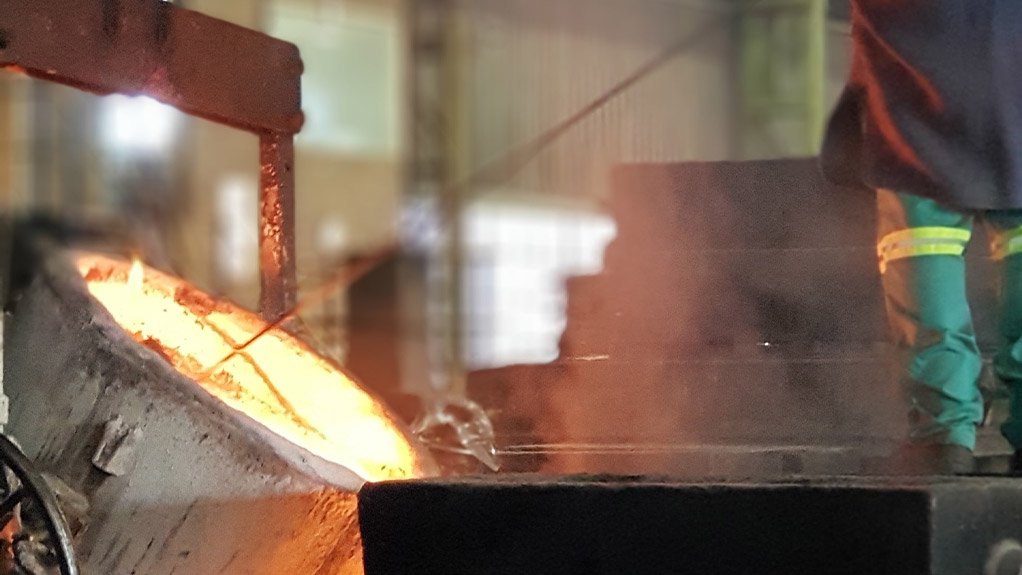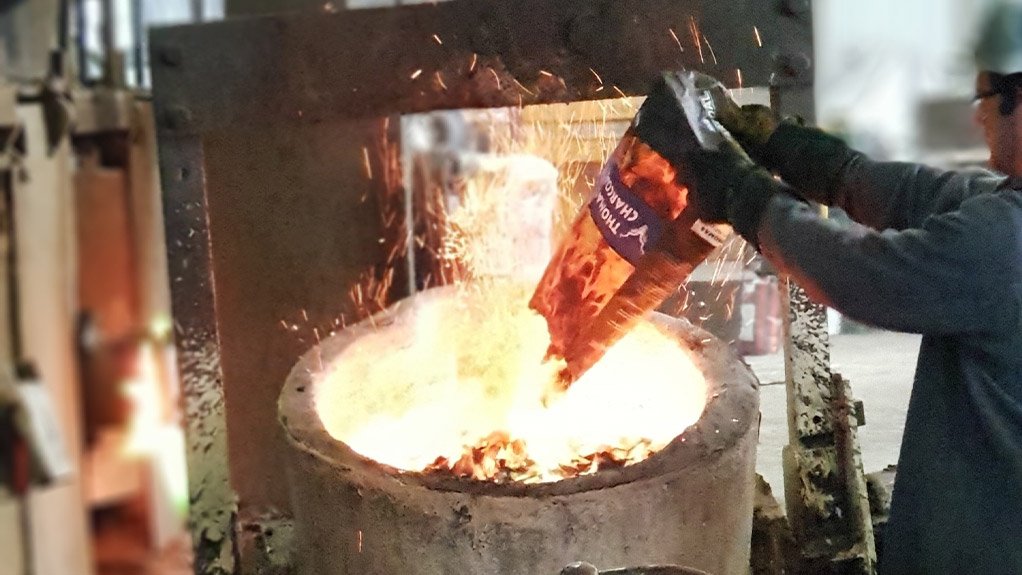Foundry and engineering company Thos Begbie has completed the registration of the company for its new branch in Zambia, which it plans to officially open later this year.
“We have secured a workshop facility and all the necessary tools to set it up, while Thos Begbie sales director Piet du Preez is obtaining a worker’s permit to enable us to set up and work in Zambia,” explains Thos Begbie sales engineer Esli Bantjes.
Unlike its main operations in Middelburg, Mpumalanga, the Zambian branch will work hand in hand with the various Zambian copper smelter operations to service and repair the furnace components.
Transporting copper components over the border to our Middelburg branch and back to the smelters in Zambia has previously proven to be a problem, adds Bantjes, but market research has shown that the smelting operations in Zambia will support the Kitwe-based facility. This means that the company will not have to transport components across the border to South Africa.
Meanwhile, Thos Begbie will exhibit at the quadrennial International Foundry Trade Fair, in Germany, from June 25 to 29. The fair acts as a platform for business meetings and metallurgical exhibitions. The seminars and symposiums will also attract industry professionals to expose the companies to the latest technologies in the metallurgical industry.
Bantjes states that, for Thos Begbie, the event will be not only an advertising platform but also an opportunity for the company to gain exposure to new technologies to improve and streamline its operations. Ensuring exposure to new industries through its regular exhibiting at this global platform is a company objective, he adds.
He notes that, a South Africa-based company exhibiting on an international trade platform means exposure for South Africa and strengthens international trade relations between companies. “The Department of Trade and Industry recognises this and, in turn, subsidises some of our expenses.”
Local Operations
Thos Begbie continuously invests in technology such as computer-aided simulated programs; the sand reclamation plant and sand mixer; and regular maintenance checks at the plant and investments to ensure optimal productivity.
“This computer-aided simulation programs have been designed to assist foundries in simulating the casting process so that we can monitor possible areas of concern and make adjustments prior to casting,” explains Bantjes.
Using these programs saves the company time and eliminates defective casting. The company has been using the simulation programs since 2014, with regular updates to the programs to streamline the process.
The sand reclamation plant uses the crushed and segregated sand and then applies heat to burn the resin that remains in the sand. This process helps to achieve the same consistency in the sand as using virgin silica sand would have. This process allows the company to recycle the sand they have used instead of buying fresh sand.
Thos Begbie also installed a sand mixer with a built-in computer. The reclaimed sand is tested, and the machine is then calibrated to automatically adjust the amount of resin and catalyst used.
The mixer allows for temperature changes in the sand and automatically adjusts the amount of resin and catalyst used to maintain the correct amount of binding materials. The resin and catalyst are alkaline-based materials supplied by a local manufacturer.
“Subsequently, we use less resin and catalyst for every kilogram, ultimately saving costs on consumables. From dumping 100% of our used sand, we now only top-up with about 30% virgin sand – a saving of about 70% on previous virgin silica sand costs,” explains Bantjes.
Further, maintenance is a significant aspect of a foundry operation, as neglecting to maintain a plant will result in constant unwanted breakdowns and, thus, loss of production, he adds.
In this regard, daily check sheets have to be completed by furnace operators, overhead crane operators and general plant operations, which, in turn, will allow for determining whether urgent maintenance is required. Every machine has a planned maintenance date, with production scheduled accordingly to reduce loss of production.
“For example, on the gas furnaces, we remove the crucible after every 95 t and conduct a reline. Working according to the planned schedule means that we are able to carry out the reline of the furnace within six hours,” adds Bantjes.
Thos Begbie is also investing in the Middelburg community through apprenticeships, as per the Skills Development Act 97 of 1998. Apprentices are trained at the plant with the guidance of skilled foundrymen, managers and engineers for three years. After completing their practical training and theoretical training, they are trade-certified as artisans in their respective field at an accredited facility, after which they are then provided with an employment contract.
“Thos Begbie does not just train our employees, they become part of our family,” concludes Bantjes.
Edited by: Zandile Mavuso
Creamer Media Senior Deputy Editor: Features
EMAIL THIS ARTICLE SAVE THIS ARTICLE
ARTICLE ENQUIRY
To subscribe email subscriptions@creamermedia.co.za or click here
To advertise email advertising@creamermedia.co.za or click here















